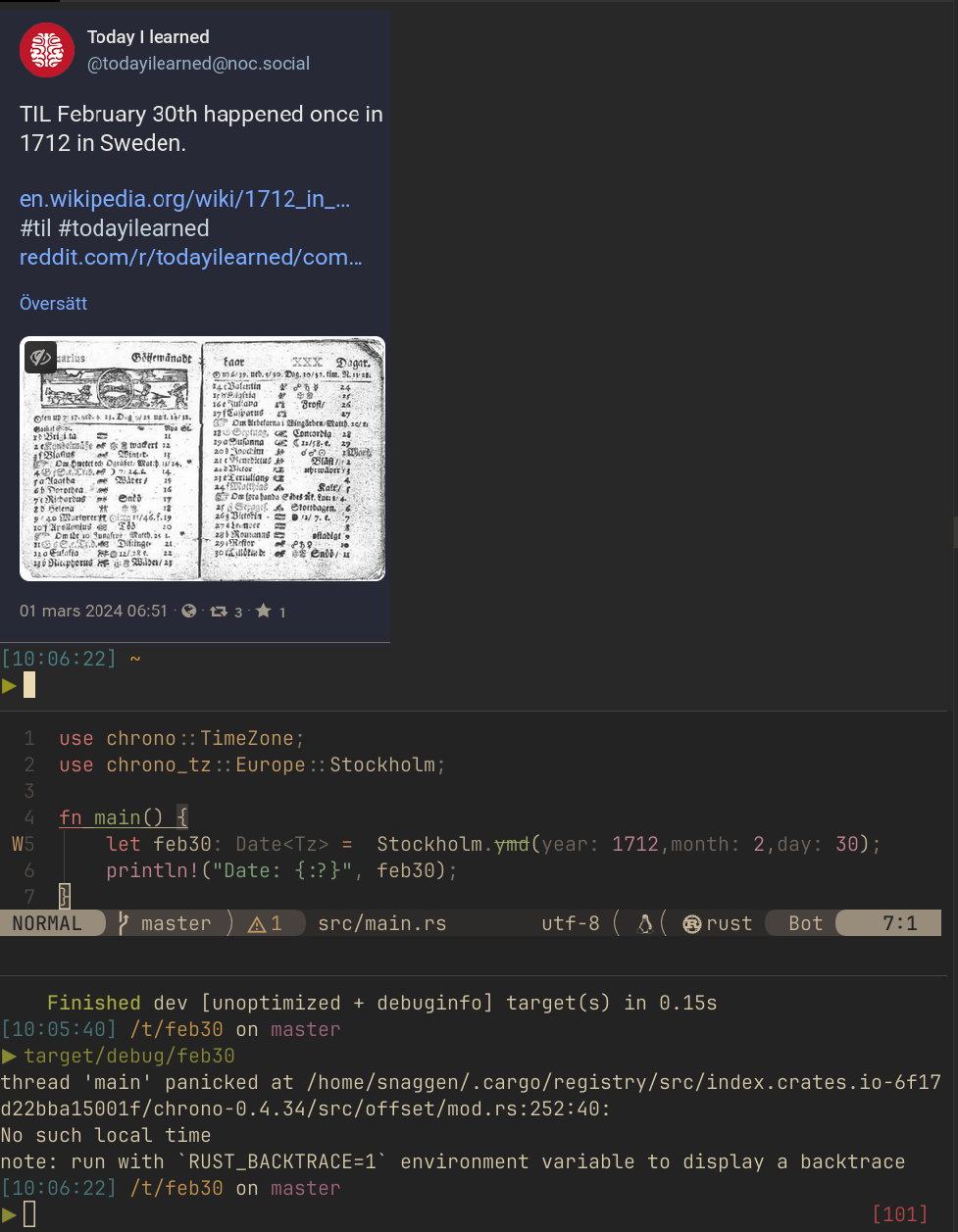this post was submitted on 01 Mar 2024
1 points (100.0% liked)
Rust
5778 readers
4 users here now
Welcome to the Rust community! This is a place to discuss about the Rust programming language.
Wormhole
Credits
- The icon is a modified version of the official rust logo (changing the colors to a gradient and black background)
founded 1 year ago
MODERATORS
you are viewing a single comment's thread
view the rest of the comments
view the rest of the comments

I wasn't clear enough. But in a contry where the sun rise at 20:00, the weekday looks like:
And phares like "let's meet on Tuesday“ without hour indication could either mean end of day 1 or start of day 2. Likewise "let's meet the 20th” (assuming the 20th is a Tuesday) could either mean end of day 1 or beggining of day 2.
--
And alternative be to have
Which solve the issue of "let's meet on Tuesday”, but not “let's meet the 20th”.